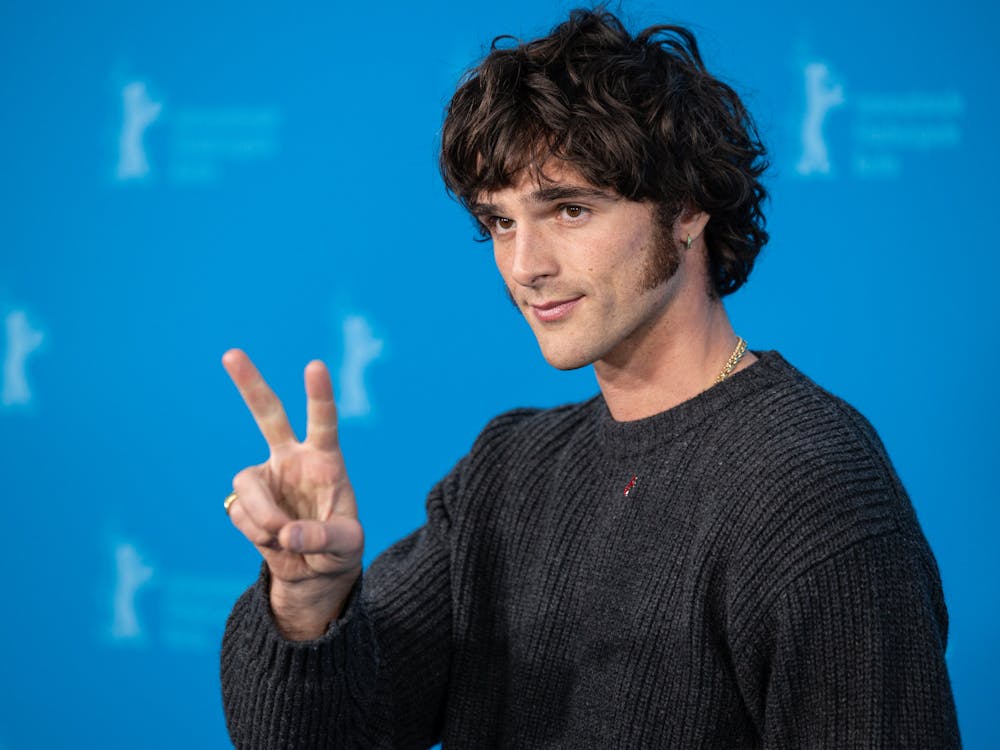In a world that seems to have lost its creative spark, doomed to forever remake the same stories in an eternal cycle of references, Guillermo del Toro creates Frankenstein — one of the most adapted works of all time. A classic del Toro film, with gorgeous visuals and a piece of real-estate I, too, would break the laws of nature for, Frankenstein was a respectful take on Mary Shelley’s original 1818 novel.
As the director of Shape of Water, Pinocchio and Crimson Peak, del Toro is famous for un-monster-ing a monster. A perfect fit for a story like Frankenstein, with nearly every film adaptation having made Dr. Frankenstein’s creature into a hideous, bumbling, brute — entirely ignoring Shelley’s central question of true humanity.
I don’t think that adaptations should solely be judged on their similarity to the source material, even though Frankenstein has yet to see a fully accurate film adaptation. So del Toro’s commitment to key plot points of the story is refreshing and commendable. As he points out in this interview with Deadline Social, while Frankenstein is a classic story about the seduction of knowledge and the responsibility of creation, it’s also subtly a travel story. About a third of the novel takes place in the middle of the woods, which most remakes fail to acknowledge for fear of being boring. In this Frankenstein, however, the visuals make the setting a highlight.
Del Toro’s main plot changes brought a sense of empathy, hope and optimism that the book lacked, leaning into the inspiration he took from the Romanticists with themes of passion, nature and mortality (not to mention the inclusion of a direct quote from Lord Byron, one of the most prominent writers of the movement and a friend of Shelley’s, in the credits). Rather than accenting the moral ambiguity of artificial creation — what I had thought to be the most timely aspect of the novel given today’s push toward artificial intelligence — del Toro honed in on the relationships between the characters. While I usually sigh at changes like this, the acting reminded me that fundamentally, most of our current issues can be boiled down to difficulty in relationships.
If I bought into parasocial celebrity relationships, I might be inclined to make Jacob Elordi my new celebrity obsession. The man’s Netflix resume has come a long way from The Kissing Booth trilogy, and he did a phenomenal job of humanizing the creature. He surpassed all of our expectations and truly embodied both the innocent newborn baby in the young creature and the wise formidability it grows into — I’m almost positive that awards season will give him his flowers. Also an excellent performance by Oscar Isaac, who did manage to sell me on the humanization of Dr. Frankenstein, which was probably the thing I was most apprehensive about going into the film. I may or may not have shed a tear at the final confrontation, and both of them captured the complexity of the parent-child dynamic almost perfectly. The gutting pain, the bitter disappointment, the irrational hope through it all — truly a masterclass by both actors.
Visually, the film was a gothic delight. The costumes were stunning, thoughtful and made me forget about the random Tiffany and Co. partnership. I was quite reminded of the Netflix adaptation of Shadow and Bone, a young adult series that rose to popularity back when TikTok had good recommendations, in its color grading and fantastical atmosphere. Everything lends itself wonderfully to del Toro’s vision, and you don’t need to be familiar with his past works to see and appreciate it. All in all, a lovely Friday evening. With that being said...
Not to be That Woke Friend, but I thought that by taking the creative liberty to reinvent Elizabeth’s role (as the lead woman in the film), del Toro would create a nuanced heroine. Mia Goth plays both Claire, Frankenstein’s dead mother, and Elizabeth, Victor’s unrequited love — that’s interesting, but exclusively in the way it reflects on Victor. Both Claire and Elizabeth have classic Dead Wife Energy; both are bold, intelligent and ahead of their time. They slot perfectly into the boring, morally uptight Madonna archetype I thought we were all tired of (she wears a rosary on her neck for the entire film).
While Shelley’s Elizabeth is a minor character “sacrificed to patriarchy” with the rest of the female cast, as English professor Julie Carlson describes in this Variety piece, that is clearly the point. That Mary Shelley’s novel almost exclusively featured men is deeply ironic and incredibly intentional — as close to a feminist commentary as was possible at the time. However, del Toro chose to focus on capitalism and generational trauma, and in doing so, he robbed us of the nuanced female character that I came to expect from him. In fairness, I do appreciate that he didn’t try to tackle every possible social issue (as many films are wont to do nowadays). However, if we could afford a complex Dr. Frankenstein, I think the budget also allowed for a complex Elizabeth.
While the remake market is still oversaturated, consider Jacob Elordi my new white boy of the month.





